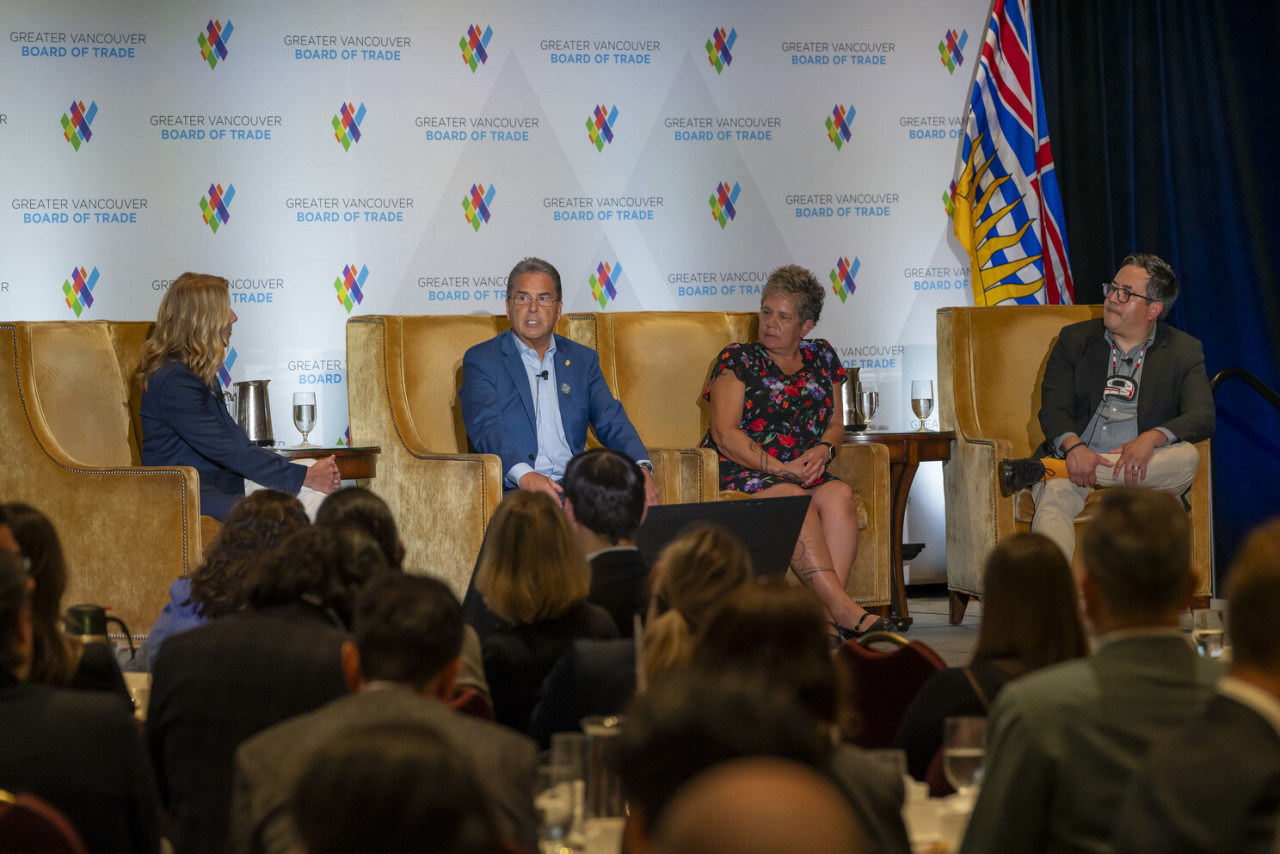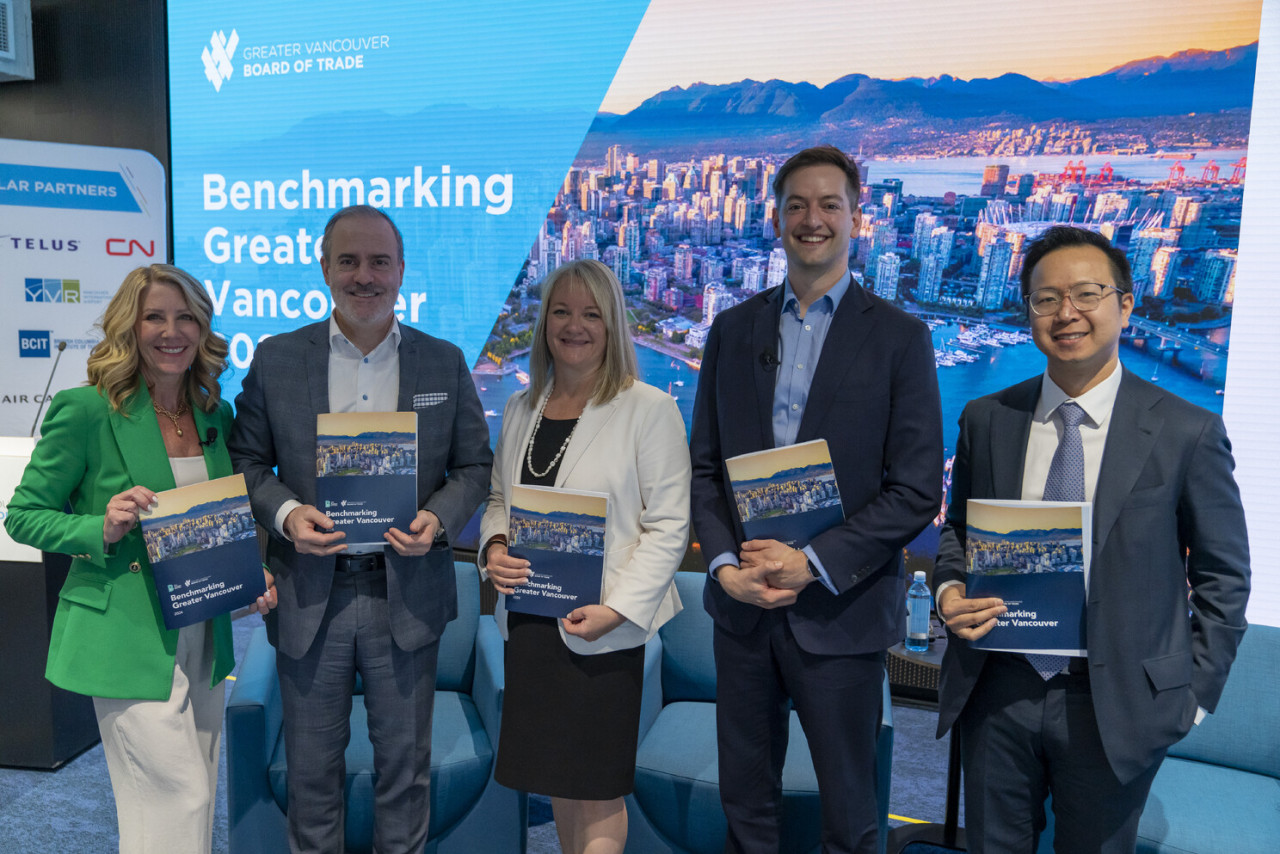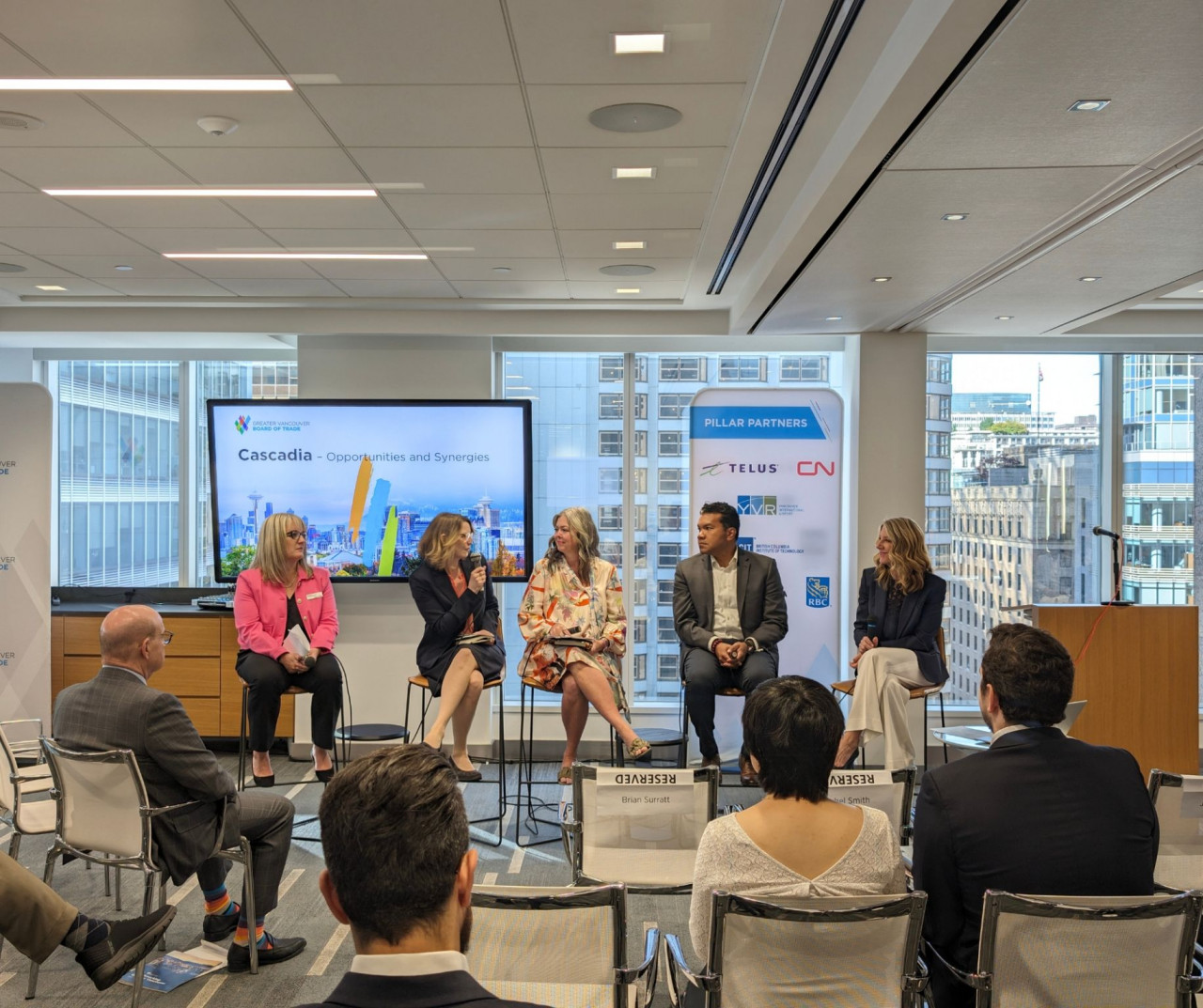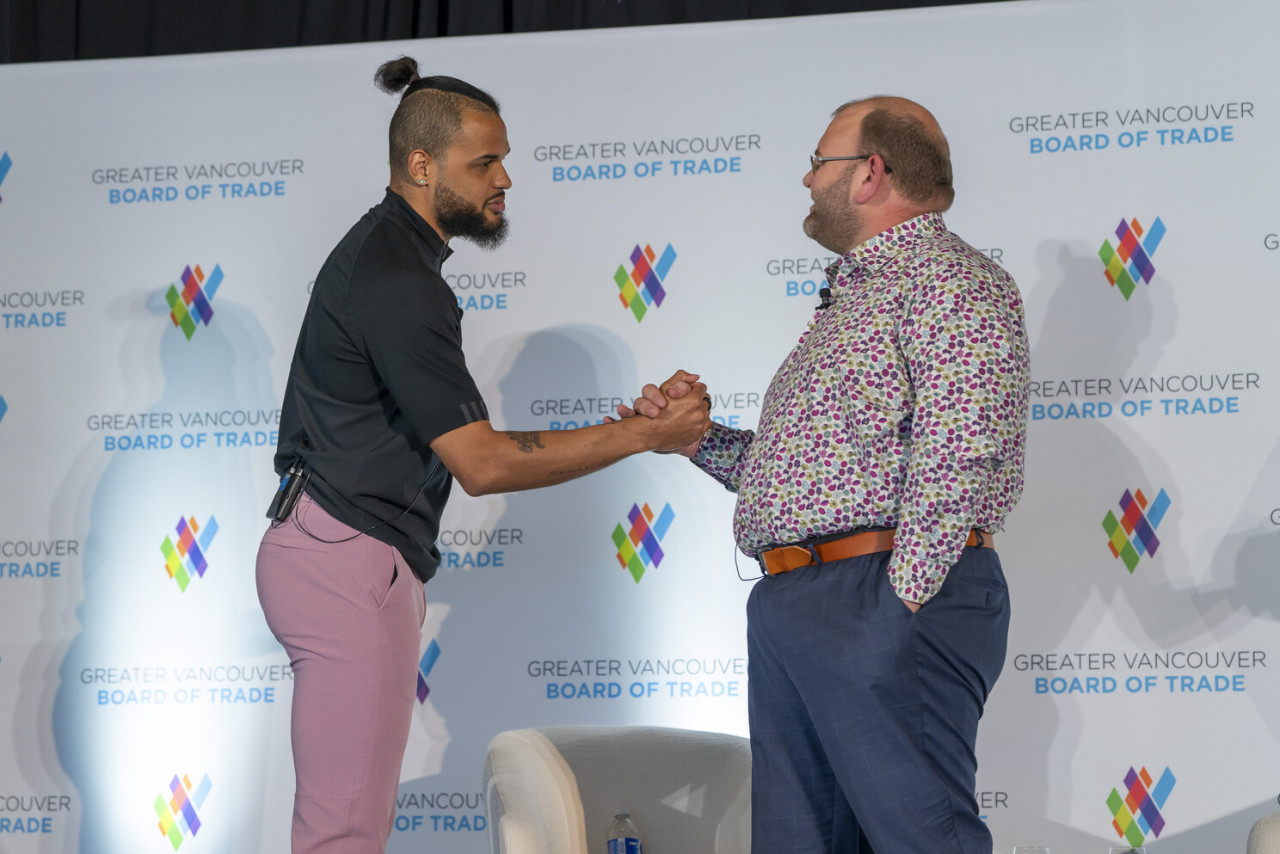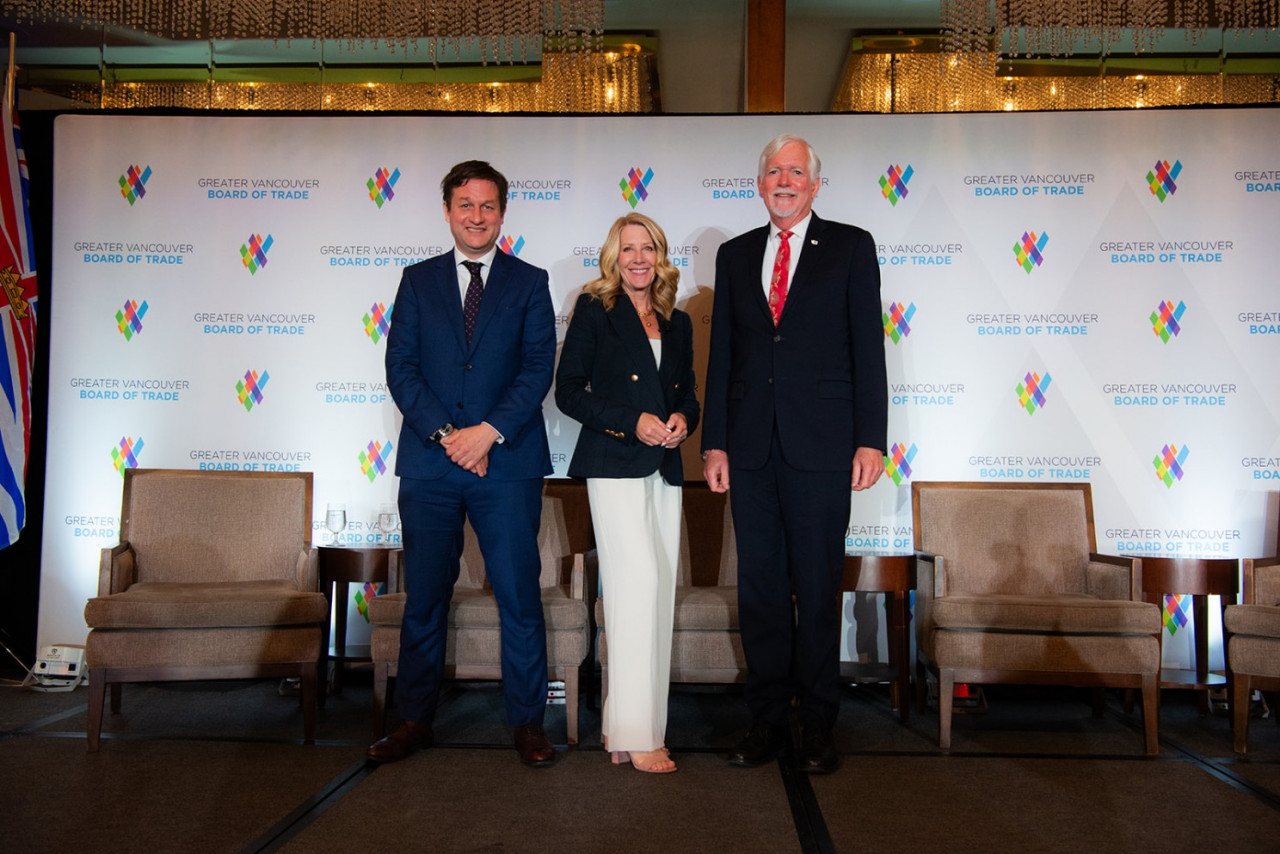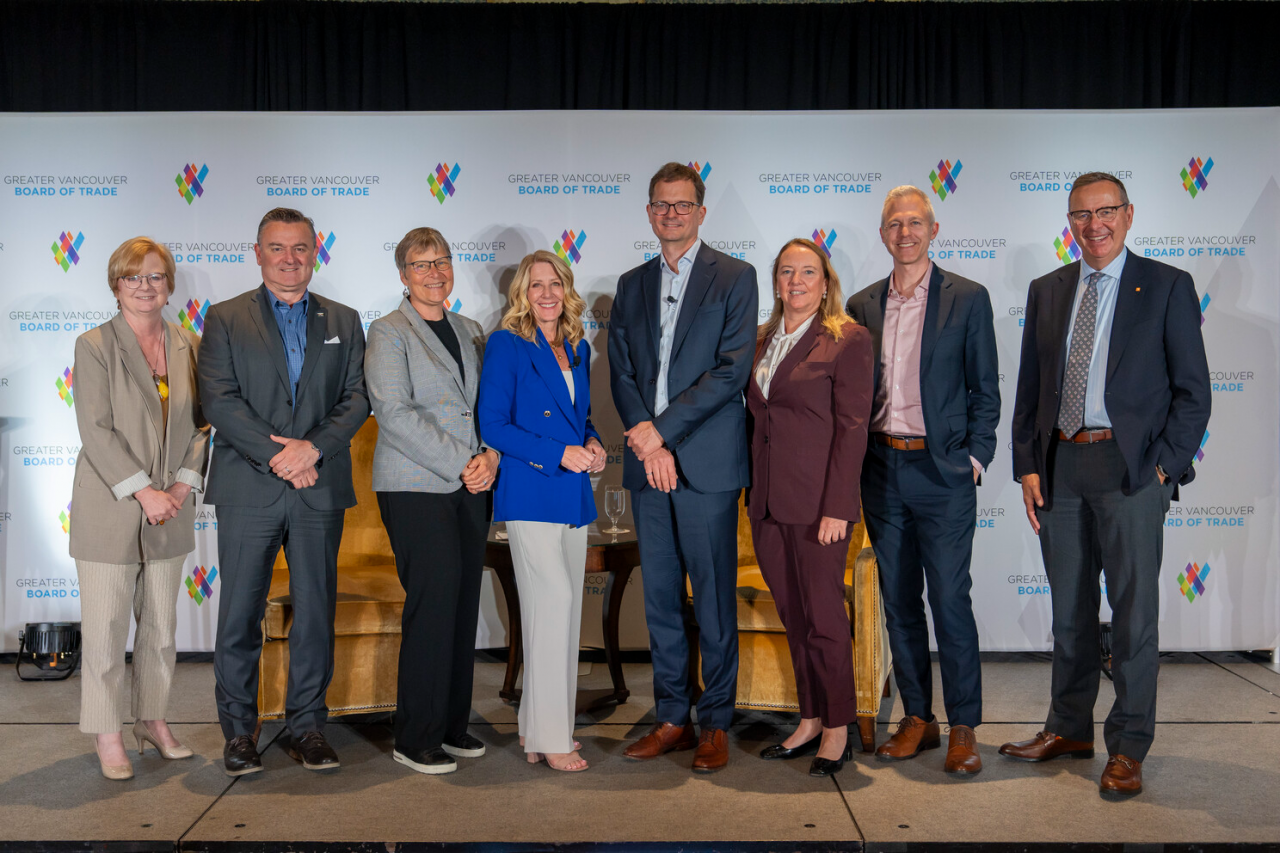Events Recap May-June 2024

As we approach the end of June, it's worth reflecting on the vibrant season of events hosted by the Greater Vancouver Board of Trade for the local business community. These events have provided opportunities for members to connect, share insights, and stay attuned to the latest industry trends and developments. From networking sessions to thought-provoking forums, each gathering has been instrumental in fostering collaboration and driving the region's economic growth.
On the Mainstage
Reconciliation in Action: Annual Address with Musqueam, Squamish and Tsleil-Waututh Nations
The economic development and sustainability efforts led by these Nations through the MST Development Corporation, which manages over 160 acres of valuable land, were the topic of conversation during the 4th annual MST address.
The leaders, including Jordan Point, Councillor, Musqueam Indian Band (xʷməθkʷəy̓əm), Chief Jen Thomas, Tsleil-Waututh Nation(səlilwətaɬ), Wilson Williams (Sxwíxwtn), Spokesperson, Squamish Nation (Sḵwx̱wú7mesh Úxwumixw), discussed their successful projects, partnerships, and the ongoing challenges of capacity building, housing affordability, and economic integration, emphasizing the importance of mutual respect and collaboration with both Indigenous and non-Indigenous communities for future growth and reconciliation.
Benchmarking Greater Vancouver 2024
In May, we unveiled the 2024 Benchmarking Greater Vancouver Report. Conducted by The Business Of Cities and commissioned by the Greater Vancouver Board of Trade, this is the first comprehensive assessment since 2018. The report evaluates the region's performance in areas like the economy, infrastructure, sustainability, livability, and advancements in transport and technology, comparing it to its international counterparts.Cascadia - Opportunities & Synergies
The Cascadia region encompasses parts of British Columbia, Washington, and Oregon, boasting a combined GDP of $600 billion and a rapidly growing population of 10 million. From High-Speed Rail Development to economic benefits from FIFA and other upcoming events, the panel of experts at the event discussed several topics critical to the region's businesses. By working together on our shared challenges, we'll be able to seize more opportunities for sustainable growth.
2024 EDI Forum - The Business of EDI
The 3rd Annual Equity, Diversity, and Inclusion (EDI) Forum by the Greater Vancouver Board of Trade convened over 300 participants to advance EDI initiatives, featuring keynotes from Lainey Lui and Akim Aliu, and sessions on inclusive leadership, technology's role in diversity, and fostering belonging. Discussions underscored the business success linked to diversity, the impact of EDI legislation, and the necessity of qualitative and quantitative data for effective strategies. Key takeaways included embedding EDI in organizational culture, valuing diverse perspectives, emphasizing empathy in policy-making, and highlighting EDI as integral to business strategy and community building rather than mere compliance.
Transportation Forum 2024 Presented by Deloitte
Our forum brought together industry experts and government officials to explore the future of moving goods and people around the region in this era of growth and change.
Power Pathway: Building B.C.'s Energy Future
BC Hydro President and CEO Chris O'Riley discussed the company's recent activities and plans at our annual event with B.C.'s largest Crown corporation. Chris brought forward some of the challenges being faced by BC Hydro over the past 15 months, including a severe wildfire season and ongoing drought, and how their team is working around the clock to ensure power remains reliable. He outlined plans to meet the growing demand for clean electricity due to population growth, industrial expansion, and increased adoption of electric vehicles and heat pumps.
Connecting the Community
Members of The Greater Vancouver Board of Trade's Leaders of Tomorrow (LOT) Program engaged in dynamic networking at this exclusive event. Brief, rotating meetings allowed participants to connect with peers, mentors, and program partners while inculcating the value of building connections in future leaders. The event offered a platform to enhance networking and rapport-building skills in a supportive and enjoyable setting.
Get-on-Board: A Night of Non-Profit Engagement
The event connected emerging professionals with local non-profits. Featuring a keynote by Invictus Games Vancouver Whistler 2025 CEO Scott Moore, attendees explored board-level & volunteer opportunities to support the community. Attending non-profits got an opportunity to showcase their crucial role in addressing community needs, fostering social good, and enhancing the overall well-being of our society.Policy Initiatives
The Greater Vancouver Board of Trade is calling on the Canada Industrial Relations Board (CIRB) to provide clear and definitive timelines for their decision-making regarding any potential work stoppage related to Canada's rail system and supply chain.
This potential rail strike could paralyze the economy, hurt people's incomes, and tarnish the region's reputation as a trading partner. Already, the possibility of a work stoppage in our rail system has resulted in companies diverting cargo from Canada due to the uncertainty of our supply chains. Read our letter to CIRB.
This month, the Province of British Columbia finalized regulations for app-based ride-hailing and delivery workers in the region. The regulations will come into effect on Sept. 3, 2024, and will apply to those who work for apps such as Uber, Lyft, Uber Eats, SkiptheDishes, DoorDash and others. Bridgitte Anderson, President and CEO of the Greater Vancouver Board of Trade, issued the following statement:
"Companies in B.C. already contend with some of the highest costs and strictest regulatory and tax environments in North America. We are concerned that the new regulations will impose additional burdens and reduce flexibility, inevitably leading to even higher costs for transportation and food delivery services. These new regulations also risk resulting in less work for ride-hailing and food delivery workers and ultimately lower overall wages. "There are some positive measures being advanced that respond to our policy paper, 'A Path Forward for the Gig Economy', such as guaranteeing a minimum wage. We will continue to advocate for a balanced approach that safeguards workers while preserving the flexibility, independence, and supplementary income opportunities inherent in gig work."
